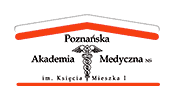Pedagogy

Poznań
Poznań - in short
Highlights of the direction
Bachelor degree
The education ends with a diploma examination.
practical profile
Graduates of this major receive initial preparation for work in the profession.
study mode
We offer the Pedagogy major in both full-time and part-time modes.
six semesters
Studies in Pedagogy last six semesters (three years)

Poznań - informant
Get to know the direction Pedagogy
Graduates of Pedagogy have knowledge of general pedagogical subjects, sociology, psychology and philosophy, which are necessary to function in the area of the so-called knowledge society. They understand the socio-cultural context of education, are able to design care and educational activities in the scope of effective support for both individuals and social groups, and also have social competences allowing for proper and effective functioning on the labor market. Due to the practical profile of education, 720 hours of professional internships are required.
Poznań - specializations
Specializations of the direction Pedagogy

Care and educational pedagogy with therapy
Graduates of Pedagogy, in the field of Care and Education Pedagogy, will gain knowledge, skills and social competences during their education, enabling them to take up professional work in care and education institutions, such as, among others, community childcare homes, community child/adult care centers, community and sociotherapeutic centers, occupational therapy workshops, emergency care centers, early intervention centers, social welfare and family assistance centers, dormitories/boarding schools. During their studies, they gain pedagogical preparation. When planning to work as a teacher-pedagog at a school or kindergarten, the Graduate must complete second-cycle studies. Bachelor’s studies are the basis for further development of qualifications at master’s studies.
In accordance with the Regulation of the Ministry of Education and Science on teaching qualifications, in force from October 3, 2023, a person who has completed first and second cycle studies or a uniform master’s degree program may become a specialist teacher.

Care, educational and resocialization pedagogy
Graduates of Pedagogy, in the field of Resocialization Pedagogy, will gain knowledge, skills and social competences during their education, enabling them to take up professional work in resocialization and penitentiary institutions, such as, among others, community and sociotherapeutic centers, occupational therapy workshops, emergency care centers, early intervention centers, crisis intervention centers, dormitories/boarding schools, family assistance centers, school and educational centers, addiction counseling centers, correctional facilities, shelters for minors, penitentiary and penitentiary institutions or detention centers. During their studies, the Graduate gains pedagogical preparation. When planning to work as a teacher-pedagog at a school or kindergarten, the Graduate must complete second-cycle studies. Bachelor’s studies are the basis for further development of qualifications at master’s studies.
In accordance with the Regulation of the Ministry of Education and Science on teaching qualifications, in force from October 3, 2023, a person who has completed first and second cycle studies or a uniform master’s degree program may become a specialist teacher.
Warszawa
Warszawa - in short
Highlights of the direction
Bachelor degree
The education ends with writing a diploma (bachelor’s) thesis and a diploma examination.
practical profile
Graduates of this major receive initial preparation for work in the profession.
study mode
We offer the Pedagogy major in both full-time and part-time modes.
six semesters
Studies in Pedagogy last six semesters (three years)

Warszawa - informant
Get to know the direction Pedagogy
Graduates of Pedagogy have knowledge of general pedagogical subjects, sociology, psychology and philosophy, which are necessary to function in the area of the so-called knowledge society. They understand the socio-cultural context of education, are able to design care and educational activities in the scope of effective support for both individuals and social groups, and also have social competences allowing for proper and effective functioning on the labor market. Due to the practical profile of education, 600 hours of professional internships are required.
Warszawa - specializations
Specializations of the direction Pedagogy

Resocialization pedagogy with social prevention
A graduate of the specialization of resocialization pedagogy with social prevention is prepared to work for the benefit of individuals, families, environments and social groups at risk of disfavour, marginalization or social exclusion, educationally neglected, requiring socialization and care, preventive, therapeutic or resocialization support.

Education for safety with crisis management
The graduate has knowledge of the theoretical foundations of resocialization pedagogy, sociotherapy, law, social prevention, mechanisms of social deviation, methodology of resocialization work and other areas of strategic impact of professional prevention and social support. He/she efficiently uses diagnostic and methodological tools in the field of preventive and resocialization activities. He/she is able to recognize and diagnose existing threats, as well as implement the resocialization process. He/she has the competences necessary to plan preventive activities, and is also aware of the need to cooperate with various people and institutions in order to co-organize preventive, assistance and resocialization activities.
Nowy Tomyśl
Nowy Tomyśl - in short
Highlights of the direction
Bachelor degree
first-cycle studies in Pedagogy end with an oral diploma examination
practical profile
graduates of this major receive practical preparation for professional work
study mode
We offer the Pedagogy major in both full-time and part-time studies
six semesters
Studies in Pedagogy last six semesters (three years)

Nowy Tomyśl - informant
Get to know the direction Pedagogy
Graduates of Pedagogy have knowledge of general pedagogical subjects, sociology, psychology and philosophy, which are necessary to function in the area of the so-called knowledge society. They understand the socio-cultural context of education, are able to design care and educational activities in the field of effective support for both individuals and social groups, and also have social competences that allow for proper and effective functioning on the labor market.
Nowy Tomyśl - specializations
Specializations of the direction Pedagogy

Care and educational pedagogy with pedagogical therapy
A graduate who completes a group of specialist professional classes in the field of care and educational pedagogy with pedagogical therapy will gain knowledge, skills and social competences during their education that will enable them to take up professional work in care and educational institutions, such as, among others, community childcare homes, community child/adult care centres, community and sociotherapeutic day centres, occupational therapy workshops, emergency care centres, early intervention centres, social welfare and family assistance centres, boarding houses, kindergartens and schools as a pedagogue. The graduate has qualifications to conduct corrective and compensatory classes. During their studies, the graduate gains pedagogical preparation.

Care and educational pedagogy with resocialization
A graduate who completes a group of specialist professional classes in the field of Care and Education Pedagogy with Resocialization will gain knowledge, skills and social competences during their education that will enable them to take up professional work in care and education institutions, such as, among others, community childcare homes, community child/adult care centers, community and sociotherapeutic day care centers, occupational therapy workshops, emergency care centers, early intervention centers, social welfare and family assistance centers, boarding houses, kindergartens and schools as a pedagogue. The graduate will be prepared to work in resocialization and penitentiary institutions, such as, among others, community and sociotherapeutic day care centers, emergency care centers, early intervention centers, crisis intervention centers, family assistance center, school and education centers, addiction counseling centers, correctional facilities, juvenile shelters, penitentiary and penitentiary institutions or detention centers. During their studies, the graduate gains pedagogical preparation.


